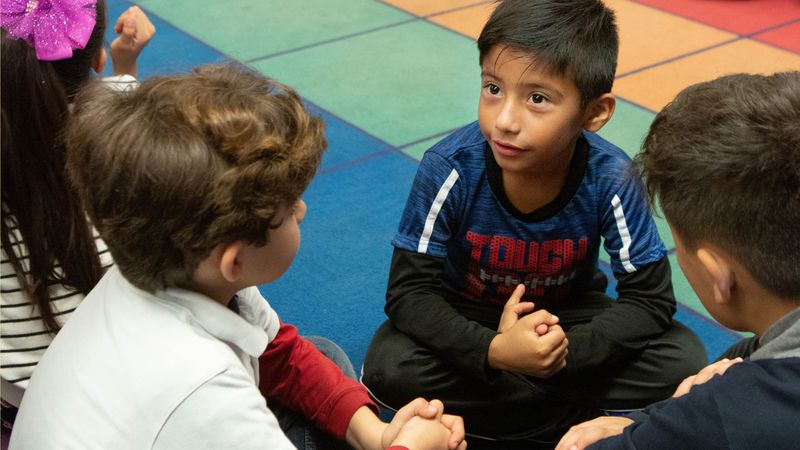Only Child? Here’s 17 Things That Make You Different (Beyond The Obvious)
Being an only child often comes with a set of unique characteristics that go beyond the usual stereotypes. These traits may influence how only children interact with the world around them, forge relationships, and develop personal strengths.
This playful yet insightful exploration delves into the quirks and qualities that set only children apart.
1. You’re Totally Fine Doing Things Solo

For many only children, solitude is a familiar companion rather than a daunting experience. You relish the quiet moments, finding joy in activities that allow you to be with your thoughts.
Whether it’s exploring a new city or enjoying a quiet hobby, you’re perfectly content doing things alone. This self-sufficiency not only fosters independence but also enriches your inner world.
Without the need for constant companionship, you develop a strong sense of inner peace and contentment. This ability to enjoy your own company often leads to deep personal insights and a robust sense of self.
2. Boundaries Come Naturally to You

As an only child, you might find that setting boundaries is second nature. Growing up without siblings, you learned to define your space and protect your interests early on.
This skill translates seamlessly into adulthood, where you assert your needs without hesitation. You know where to draw the line, whether it’s in relationships, work, or personal matters.
Your understanding of personal boundaries allows you to maintain healthy interactions and avoid unnecessary conflicts. It’s a trait that keeps your relationships respectful and your life balanced, as you navigate with a clear sense of where you stand.
3. You Don’t Rely on Chaos to Feel Connected

Unlike those who grew up in larger families, you don’t associate chaos with connection. Your upbringing taught you to value calm and clarity over noise and disorder.
In social settings, you might prefer meaningful conversations over loud gatherings. This preference doesn’t stem from shyness but a genuine appreciation for thoughtful interactions.
Your ability to find connection in tranquility allows you to form deep, authentic relationships. It’s a refreshing approach that many find comforting, as you bring a sense of peace and focus to the dynamics of your social circles.
4. You’re Used to Being Listened To

As an only child, you often had the undivided attention of your parents. This experience instilled in you the ability to communicate effectively, knowing your words mattered.
You learned to express yourself clearly, as your voice was always heard. This skill translates to various aspects of life, where your opinions are articulated with confidence.
In group settings, your communication style stands out. People are drawn to your clarity and directness. It’s not just about being heard, but about listening and engaging in meaningful exchanges that make a difference.
5. Silence Doesn’t Make You Uncomfortable

For some, silence can be awkward, but not for you. As an only child, you learned early on that silence is not something to be filled but embraced.
Moments of quiet are not only tolerable but cherished. Whether you’re alone or with others, silence offers a space for reflection and inner peace.
This comfort with silence allows you to be present and attentive, without the need to fill every moment with chatter. It’s a rare quality that adds depth to your interactions and a sense of calm to your presence.
6. You Have Strong Opinions—Often Early On

Developing strong opinions at a young age is common for only children. With no siblings to challenge your views, you often have the freedom to explore ideas deeply.
This early development of opinions shapes your critical thinking skills. You’re not afraid to voice your beliefs, often ahead of your peers.
Your assertive nature in expressing opinions is balanced by a willingness to listen and adapt. This dynamic approach to dialogue enriches your discussions and broadens your perspectives.
7. Conflict Isn’t Something You Default To

For you, conflict is not a default reaction. Growing up without siblings often means fewer opportunities for disputes over shared toys or personal space.
This absence of early conflict fosters a preference for harmony. You seek constructive solutions rather than engaging in unnecessary arguments.
Your approach to conflict is more about understanding and resolution than winning. It’s a thoughtful method that often leads to lasting peace and mutual respect in your relationships.
8. You Take Relationships Seriously

Relationships hold a special place in your heart. As an only child, every connection you make is cherished and nurtured with care.
You approach relationships with intention and depth, valuing quality over quantity. This often leads to strong, lasting bonds with those you care about.
Your commitment to your relationships means you invest time and energy in fostering meaningful connections. It’s a dedication that doesn’t go unnoticed, making you a cherished friend and partner.
9. You Grew Up Relating to Adults More Than Kids

Growing up surrounded by adults, you often found yourself in their company more than that of peers. This dynamic fostered maturity and advanced communication skills from a young age.
Engaging with adults helped you develop a nuanced understanding of diverse perspectives and articulate your thoughts clearly.
This early exposure to adult dialogues and ideas enriched your worldview and equipped you with social finesse. It’s a skill set that continues to aid you in navigating complex social landscapes.
10. Independence Is Your Starting Point

From an early age, independence was not just encouraged but necessary. With no siblings to lean on, you learned to rely on yourself.
This self-reliance translates into a confident adult who’s comfortable taking on new challenges solo. You thrive in situations that demand initiative and resourcefulness.
Your independent spirit often inspires those around you, as you navigate life’s adventures with a fearless and open-minded approach. It’s a trait that shapes your personal and professional endeavors.
11. You’re Often Very Self-Aware

Self-awareness is a hallmark of growing up as an only child. Without siblings to compare yourself to, you focus inward, developing a keen sense of your strengths and areas for growth.
This introspection often leads to a profound understanding of yourself, allowing you to navigate life’s complexities with clarity.
Your self-awareness is not only about knowing who you are but also about understanding how you impact others. It’s a reflective quality that fosters empathy and thoughtful interactions.
12. Sharing Can Still Feel… Negotiable

Sharing is known to be a skill learned through sibling interactions, which might make you approach it differently. For you, sharing isn’t an automatic response but a thoughtful choice.
You weigh the pros and cons, deciding when and what to share. This doesn’t mean you’re selfish; rather, you’re deliberate.
This nuanced take on sharing reflects an understanding of value and personal boundaries, adding a layer of thoughtfulness to your generosity. It’s a mindful approach that often leads to meaningful exchanges.
13. You Tend to Take Commitments Seriously

Commitment isn’t taken lightly in your world. Being an only child means you understand the importance of following through.
When you commit, whether to a task or relationship, you do so with full intent. Your word is a bond that you respect highly.
This approach fosters trust and reliability in those around you. It’s a trait that enhances both personal and professional relationships, as people know they can count on you.
14. You Move Differently in Group Dynamics

Navigating groups is an art you’ve mastered over time. As an only child, you learned to read the room and engage on your terms.
You find your place within group dynamics not by blending in but by standing out. Your unique perspective and assertiveness often make you a valuable contributor.
This ability to move gracefully through social settings is a testament to your adaptability and confidence, enriching the collective experience for everyone involved.
15. You’re Skilled at Emotional Self-Regulation

Growing up without siblings often meant managing emotions independently. You developed a toolkit for emotional self-regulation early on.
This skill allows you to process feelings thoughtfully and respond rather than react to situations. It’s a balance that adds stability to your life.
Your ability to regulate emotions not only benefits you but also those around you, as you bring calm and understanding to relationships. It’s a grounding force that enhances your interactions.
16. You Often Lead Without Needing a Title

Leadership for you isn’t about titles; it’s about influence. As an only child, you learned to take initiative naturally.
You often find yourself in leadership roles, guiding from behind the scenes with subtlety and effectiveness.
Your leadership style focuses on collaboration and inspiring others, making you a respected figure in various settings. It’s a quiet strength that fosters trust and cooperation.
17. You Think Deeply Before Making Major Moves

Decision-making is a thoughtful process. You don’t rush into major life choices without considering all angles.
This depth of thought ensures that your decisions are well-informed and aligned with your values.
Your strategic approach to life’s big moves reflects a maturity and foresight that’s often admired. It’s a careful consideration that guides you to make impactful, lasting choices.







